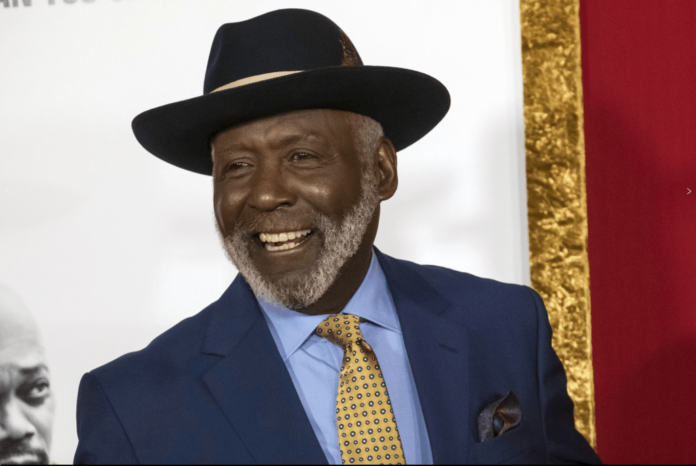
By Ericka Alston Buck, Special to the AFRO
News of film and stage icon Richard Roundtree’s death sent a ripple of grief around the world as fans and loved ones learned the news, triggering a profound sense of loss.
Roundtree’s monumental influence extended far beyond the geographical boundaries of New Rochelle, N.Y., where he was born. With his magnetic presence and groundbreaking roles, he left an incredible mark on Hollywood and people’s hearts worldwide. Across the country, creatives who thrive on art and culture felt the impact of the loss of a legend who had inspired generations of artists.
Best known for his iconic portrayal of the smooth private detective John Shaft, Roundtree created a timeless and universal character. The “Shaft” film series has served as a cultural touchstone since its debut in 1971. The Shaft character broke not only crimes but racial barriers in the industry, becoming a symbol of empowerment and a testament to the power of representation.
Rain Pryor, the talented actress, comedian, and daughter of the late Richard Pryor, shared her thoughts on Roundtree’s passing.
Pryor, with a family deeply intertwined with the world of entertainment, recognized Roundtree’s monumental contributions and the inspiration he provided to artists of all backgrounds. Both her mother and father were personal friends of the legend.
Local actor and Grammy-nominated entertainer Richard Burton, renowned for his role in “The Wire,” expressed his sorrow at Roundtree’s passing. Burton revealed a personal connection to Roundtree’s work.
“His movies were the first movies that my parents took me to see at The Mayfair and Boulevard Theaters. He was one of my first inspirations,” said Burton. “I knew I could one day be on the big screen because I first saw him do it.”
“I am particularly saddened by the passing of Richard Roundtree,” said Burton.
Roundtree’s influence extended beyond his peers, motivating young talents like Burton to dream big and pursue their own acting careers.
Roundtree was known for his support of local arts initiatives and community projects. His contributions were not limited to his roles but extended to his real-life role as a mentor and friend to the artistic community.
Roundtree’s impact on the international arts community was profound. His universal appeal and his commitment to breaking down racial barriers resonated with artists and enthusiasts alike. His legacy served as a reminder of the importance of representation and diversity in the arts, inspiring many to continue pushing boundaries and forging their own paths.
As family and fans celebrate Roundtree’s life and work, they find solace in the enduring impact of a man who transcended borders.
Richard Roundtree, a true legend, left an indelible mark on Hollywood and the hearts of those who were fortunate enough to experience his artistry. His memory will continue to inspire artists and serve as a testament to the power of representation.
This article originally appeared in The Afro.




